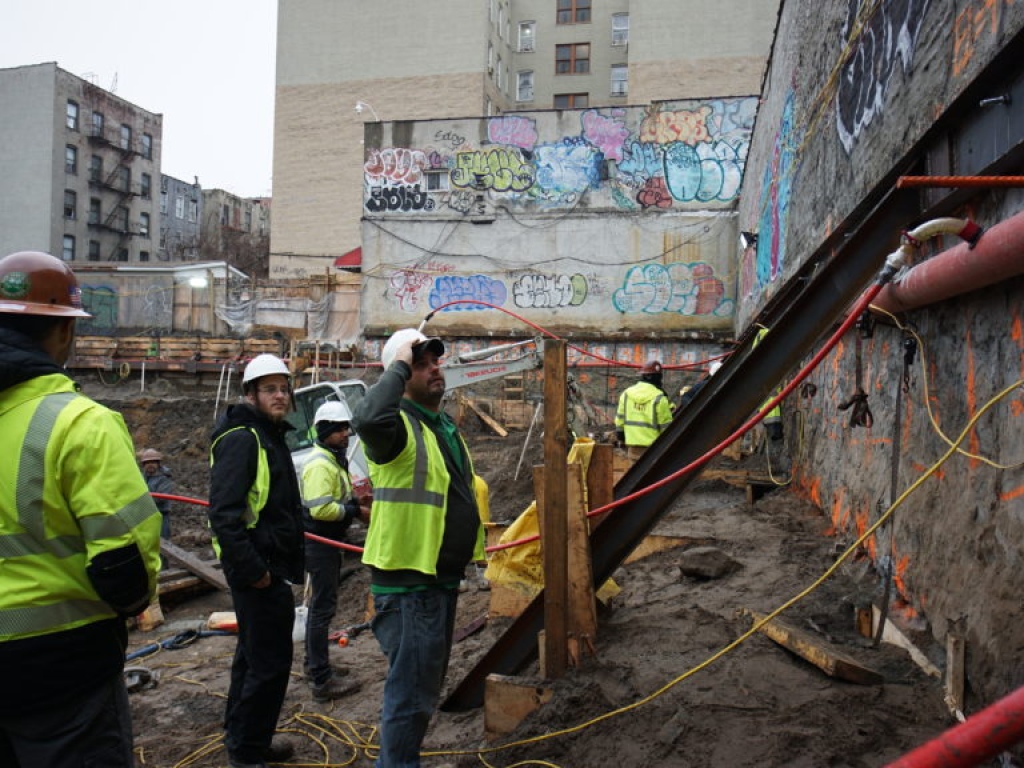21.03 2025

First, you notice an excavator behind the fence. Then — vibrations under your feet, a crack in the facade, a door that suddenly doesn’t close well. And a couple of weeks later — lack of sleep, panic, and endless Google searches: “the house is cracking because of the neighbors’ construction, what should I do?”
If you recognize yourself in these words, you’re not alone. Construction and excavation work in the neighborhood has become a reality for thousands of homeowners, especially in the suburbs and in the private sector of large cities. And, alas, it’s not just noise and dust. These are real risks that can affect the condition of your home — the foundation, walls, even underground utilities.
Loud, dirty, and… dangerous?
Every year, thousands of private plots of land turn into construction sites. Someone is digging a pit for a new house, someone is installing a swimming pool, someone is building a parking lot or a terrace with a basement. All this is accompanied by massive earthworks, often with heavy equipment and without proper geotechnical control.
And here is where the fun begins.
Any movement of the soil changes its density, creates new pressure points and can disrupt the natural balance of soil layers. And this is a direct threat not only to the site where the work is being carried out, but also to neighboring houses. Especially if they are built on difficult or weakened soils.
What can go wrong?
Oh, a lot. The most common consequences of excavation work in the neighborhood:
But perhaps the most unpleasant thing is uncertainty. You don’t control the process, you don’t know what project they’re working on, whether your neighbors have expertise or they just “found cheaper diggers.” Meanwhile, your house is cracking, settling, and sending out distress signals.
When fear isn’t paranoia
If you feel anxious, that’s normal. At first, you chalk it up to noise. Then to “spring soil movement.” Then you notice that the same microcrack in the corner of your bedroom is growing day after day. Panic? No. It’s just common sense.
The fear of the house collapsing, into which you’ve put everything, is not a fiction. It’s a rational fear that you don’t need to fight, but work with. And most importantly, don’t keep quiet.
What can (and should) be done?
1. Look after your home as if it were yourself
Just as we notice a cold from the first cough, so the house gives signals: cracking, cracks in the tiles, jamming doors – these are not trifles. These are symptoms. And the sooner you “diagnose” them, the higher the chance of dealing with the problem without major intervention.
2. Document everything
If you suspect that your neighbors’ excavation work may damage your house, take photos and videos of its “before” condition. This will help if it comes to litigation. Write down dates, changes, sounds you hear – all this can be evidence.
3. Contact specialists
Don’t wait until the second crack appears. Or the third. Modern technologies allow you to conduct a non-destructive examination of the foundation and structures, identify displacements and stresses, record changes that are not noticeable to the naked eye.
Prevention is cheaper than repair
If you just found out that your neighbors are planning large-scale work, don’t waste time. There are methods for stabilizing the soil and protecting the foundation that can be done in advance – before the excavator moves. This will cost several times less than repairing a warped facade or raising a settled extension.
What if it’s too late?
Don’t panic. Even if the house has settled and the wall has cracked, this is not a death sentence. Modern polymer injection methods allow:
And all this – without excavations, without dismantling, without a construction team leaving for two months. Technologies have really stepped forward – and you have the right to use it.
Your home is not just a building. It is a territory of comfort, memory and strength.
Don’t let other people’s work destroy your space. If excavation work has begun nearby – don’t wait until the consequences become irreversible. Contact the experts, order diagnostics, stabilize the structure.
Because prevention is cheaper than pain. And your home deserves the same attention as you do.


